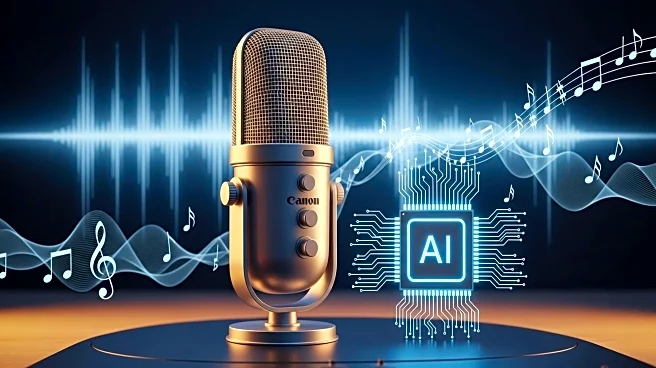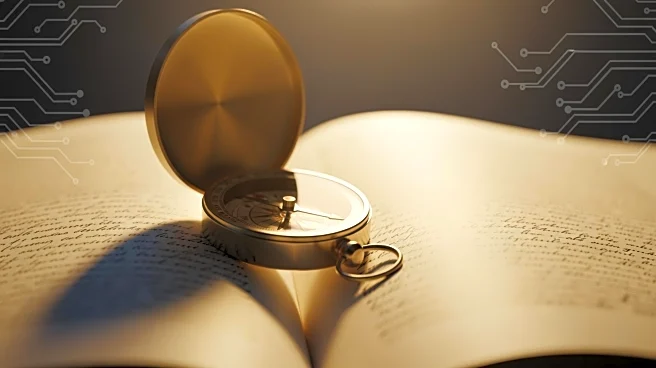What is the story about?
What's Happening?
YouTube Music Chief Lyor Cohen and rapper Jidenna have expressed strong support for the integration of artificial intelligence (AI) in the music industry. During an event in New York, they showcased the Wu-Tang Clan's latest music video, created entirely using Google's AI video generator, Veo 2. Cohen emphasized the artistic value of AI-generated content, while Jidenna highlighted the parallels between AI and hip-hop, particularly in terms of innovation and overcoming marginalization. The discussion also touched on the legal and ethical challenges posed by AI, with Google's VP of Legal, Kevin Montler, acknowledging that technology is advancing faster than current legal frameworks. Despite these challenges, both Cohen and Jidenna encouraged embracing AI as a tool for creativity and innovation.
Why It's Important?
The endorsement of AI by influential figures in the music industry like Cohen and Jidenna signals a significant shift towards embracing technology in creative processes. This could lead to new opportunities for artists to explore innovative forms of expression and reach wider audiences. However, it also raises important questions about copyright, artist consent, and the potential for AI to disrupt traditional business models. As AI continues to evolve, the music industry may need to adapt its legal and ethical standards to address these challenges. The conversation reflects broader trends in the entertainment sector, where technology is increasingly seen as both a tool and a challenge.
What's Next?
As AI technology continues to develop, the music industry will likely see more AI-generated content. This could lead to further discussions and potential reforms in copyright laws and artist rights. Industry stakeholders, including artists, record labels, and tech companies, may need to collaborate to establish guidelines that balance innovation with ethical considerations. The ongoing dialogue between technology and creativity will be crucial in shaping the future of the music industry.
Beyond the Headlines
The integration of AI in music also raises cultural and ethical questions about the nature of art and creativity. As AI becomes more prevalent, it may challenge traditional notions of authorship and originality. This could lead to a reevaluation of what constitutes art and who is considered an artist. Additionally, the use of AI in music may influence other creative industries, prompting broader societal discussions about the role of technology in human expression.
















